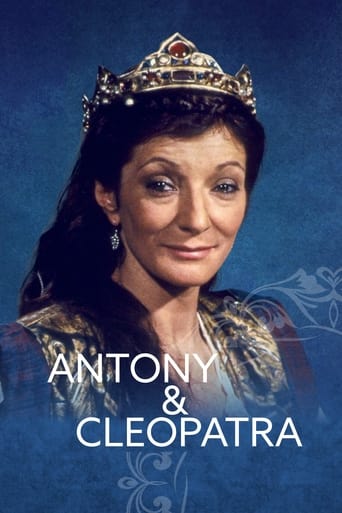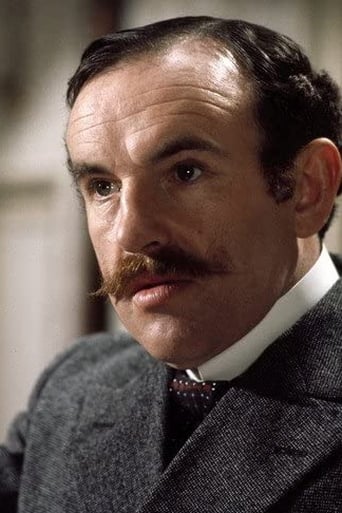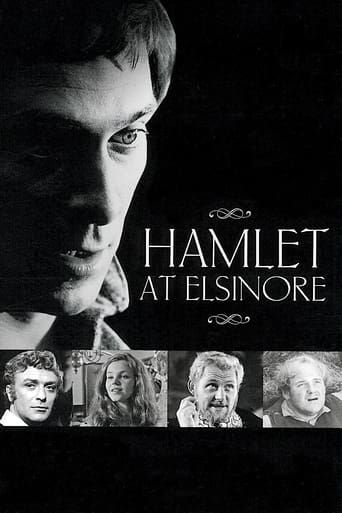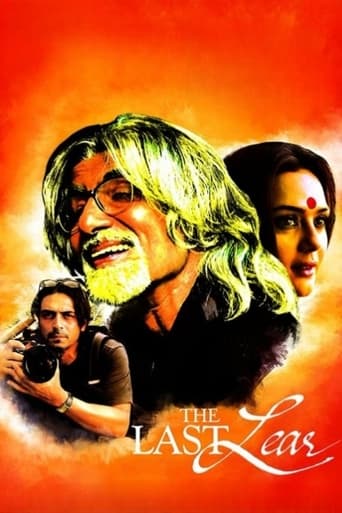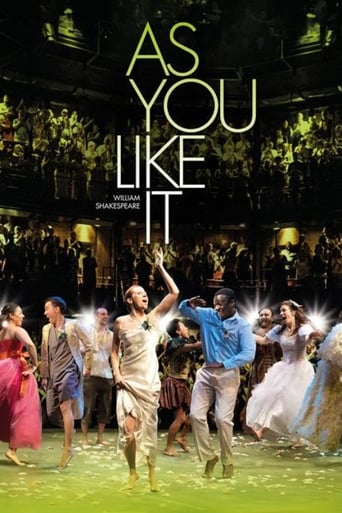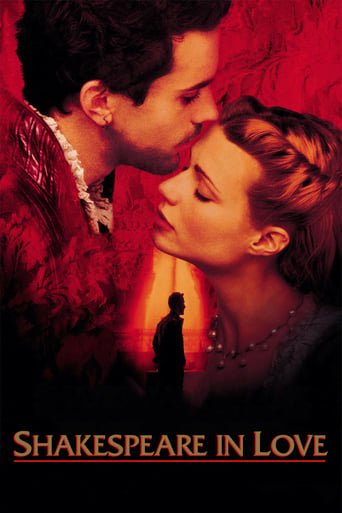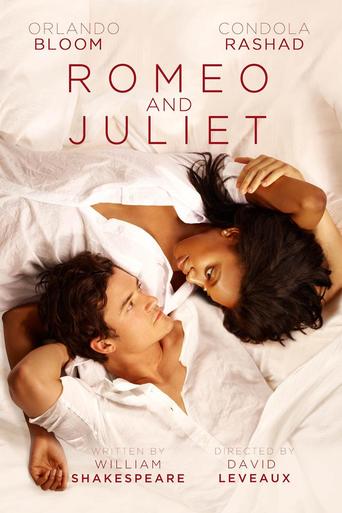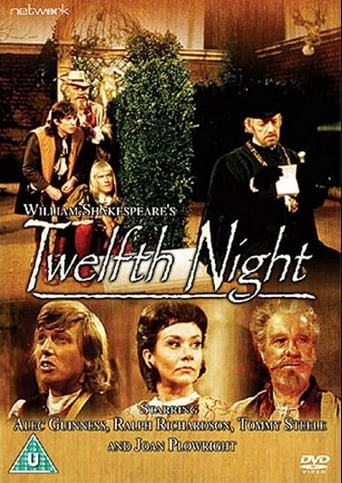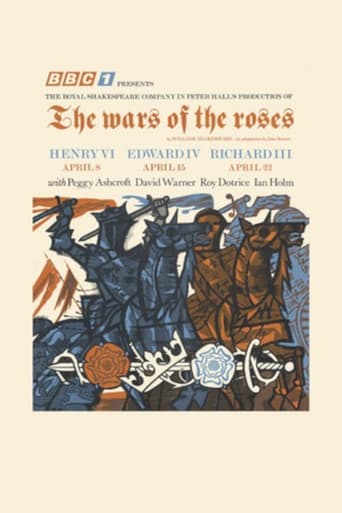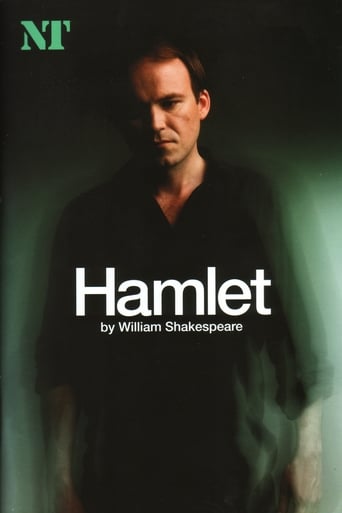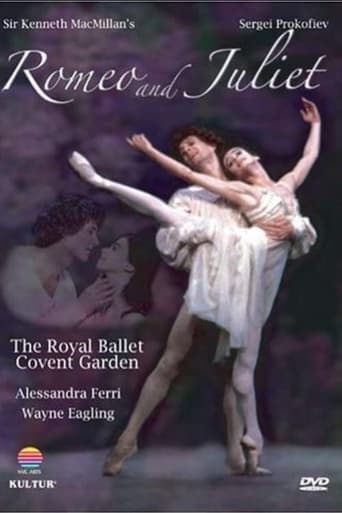Antony & Cleopatra (1981)
Octavius Caesar (later renamed Augustus Caesar, son of the murdered Julius Caesar), Marc Antony, and Lepidus form the triumvirate, the three rulers of the Roman Empire. Antony, though married to Fulvia, spends his time in Egypt, living a life of decadence and conducting an affair with Queen Cleopatra. In Antony's absence, Caesar and Lepidus worry about Pompey's increasing strength.
Watch Trailer
Cast


Similar titles
Reviews
good back-story, and good acting
A lot more amusing than I thought it would be.
The performances transcend the film's tropes, grounding it in characters that feel more complete than this subgenre often produces.
Clever and entertaining enough to recommend even to members of the 1%
That is a major play, and it is rendered as such. Shakespeare insists particularly on the political dimension of the soldier and on the military dimension of the politician. A soldier needs a woman he loves to support him fully. Any doubt he may feel in this support will crush him down into indecision and will make him go to defeat, make him defeat himself. In fact we can even wonder if love is warranted for a soldier, except the love of the immediate subordinates who are in the Greek tradition the real boost of the heart of a warrior. It appears clearly in this play, at the end, when Antony asks Eros to do what he has sworn to do in his compact with him when he was hired: kill the general when he is close to defeat so that he won't face defeat. This means this young man would become the murderer of the general and would be put to death in the most horrible way, but that's the price to pay for the love of the general, for the privilege of loving and being loved by the general. But the love of or the love for a woman when it becomes a passion is dangerous for the general and his success. It should be kept away. As for the politician love does not even exist. A politician, is supposed to have a wife and children but love is out of the question because politics is all but love and it may even require that you put to death the very woman you love and are married to. In politics there is no sentiment, no emotion, no faithfulness. It is only treachery and a traitor's land or should I say marsh or even pit. So Antony can lose one wife. He remarries straight away with the sister of his main antagonistic associate, Caesar himself. But it is not love. It will not be consumed, or hardly. It is only a necessary circumstantial union. This play shows that marvelously. But it shows something else. On one side the lover, infatuated in his mistress. On the other side the politician who is constantly seeing treachery in his mistress. Every single time she yawns or sighs Antony sees some political innuendo, underground meaning, some dagger swerving in his back ready to sheath itself between his ribs and vertebrae. And the general is literally destroyed in his leadership by this impossible constant doubt to the point of losing two battles one after the other. The question remains open whether Cleopatra pulled her vessels out of the battle twice with any intention or just out of incompetence and negligence. Did she have a pact of some kind with Caesar? I am afraid there is a deeper and worse meaning. The "triple pillar of the world" that is Rome with power divided among three men is not feasible and things have to be simplified and power reduced to one man. The elimination of two of these three will enable then, as Caesar says, a true unification of the Roman world in peace: "the three-nooked world shall bear the olive freely." The charm of that "shall" that will bring peace under the sole authority and will of one man who will bring that issue out through war and the defeat and death of the other two. And then "the triple turned whore" that Cleopatra is, is the other side of that triple fate, the reflection of the triple pillar and its fate to be destroyed and replaced by a single pillar. And then Eros who is "thrice nobler than myself", as Antony says, becomes clear: Eros killing himself in front of his master instead of accepting to be the murderer of his master for the sole sake of love becomes a direct accusation leveled against and at Antony: you are a coward who cannot even kill himself, and anyway I will not survive this moment since I will be put to death no matter whether I survive alone or you survive along with me. I will be the pet of the general everyone will torture to death in front of the general that no one will dare put to death in public, only in a back alley after the triumph. And the conclusion is clear, as clear can be when it is said, and it does not matter who says it: "Patience is sottish and impatience does become a dog that's mad?" Note the "does" that makes this verb "become" the synonym of "fit" or "suit" or "match". And the noblest part of this play is the mysterious, slightly ironical but long discourse of the Nile peasant that brings the two "worms". His heavy repetition of the word makes it sound like some kind of tolling bell that suspends the end and makes us mad with impatience. And there is the mad dog. We are the beast staring and tom-peeping at that intimate scene of total defeat and deconstruction. A good experience, maybe just one iota too expansive and vocal. Some reserve and modest discretion might have served the depth of the message a little bit better.Dr Jacques COULARDEAU, University Paris 1 Pantheon Sorbonne, University Paris 8 Saint Denis, University Paris 12 Créteil, CEGID
This follow-up to "Julius Caesar" watching the continuing fortunes of Mark Antony (Colin Blakely) and Octavius Caesar (Ian Charleson) suffers from a fate that plagued too many of the BBC Shakespeare productions. Despite good performances and an accuracy with the text, it is overlong and too Elizabethan for it's own good.Mark Antony has won the country of Egypt for the Roman Empire, but becomes divided from his friend and fellow ruler Octavius Caesar when he falls in love with Cleopatra (Jane Lapotaire), Queen of Egypt setting the pair of them on course for a showdown...Blakely is good as Antony, and Lapotaire is dynamic and passionate as Cleopatra but Colin Blakely could do more with Caesar to give him more presence. There is some good support here with Emrys James's conflicted Enobarbus and Antony Pedley as Agrippa.Technically it's got some interesting sets notably Cleopatra's boudoir, but there is an excessive reliance on plain white or plain black backgrounds, and the stage fighting is clumsy and awkward to watch.Some scenes could have definitely been cut for pace as they drag too often, a sin in a straight drama such as this. Worthy but ineffective stuff.
The reputation of this performance is not good. The initial reviews were quite scathing. The competition from the Johnson/Suzman/Nunn version is decisive; the other version is better. However, there are many fine things about this video. Let's talk about them first.Ian Charleson's Octavius Caesar is good, a schoolmaster with ice water in his veins. Many of the supporting players are quite fine. The almost completely blind Esmond Knight does a hilarious drunk scene as Lepidus, and Donald Sumpter gives Pompey a model reading.The visuals are spare but more lushly colored than usual in the BBC series, giving a Mediterranean vividness to the whole show, even if lovers of spectacle will do better with the Taylor-Burton film.Emrys James is less successful as Enobarbus. This part is generally considered actor-proof, but here James is charmless and without variation. His great speech describing Cleopatra's barge is completely ineffective. Whether the blame is his or the director's is lost to history, but I'm betting on Jonathan Miller's expressed annoyance with "tired" tradition.However the real problem is with the two title characters. It's as if you'd gone to the theater, settled in your seat, and then heard an announcement that owing to the leads' illness, the actor playing Enobarbus would instead be playing Antony, and the actress playing Charmian would take on the role of Cleopatra.Colin Blakely was a bright spot in many fine films during his career, but they were usually other peoples' films. Here he understands the character well enough and gives a good performance. He plays all the right notes, but he himself is the wrong instrument. He's simply not an Antony.Jane Lapotaire is a bigger problem. Her portrayal of Cleopatra is small to the point of cramped, mechanical, calculating, and self-obsessed. A shopgirl's idea of a queen, she never strikes a single true note. In the first half of the play, she's merely wrong. In the second half she becomes an active trial for the viewer. When Antony is finally dead, instead of rising to greatness in understanding, she shrinks into dreary, unspontaneous hysteria. This is one Cleopatra who learns nothing from her experience. While she goes on and on shrieking and weeping, you wind up urging the snake to get on with it.So it's not an out and out disaster, but with the poor casting of the two leads, the show never quite pulls itself together. Turn your attention immediately to the RSC version with Johnson and Suzman, and don't look back.
Blakely is miscast as Antony, but James' Enobarbus makes up for Blakely's defects.

